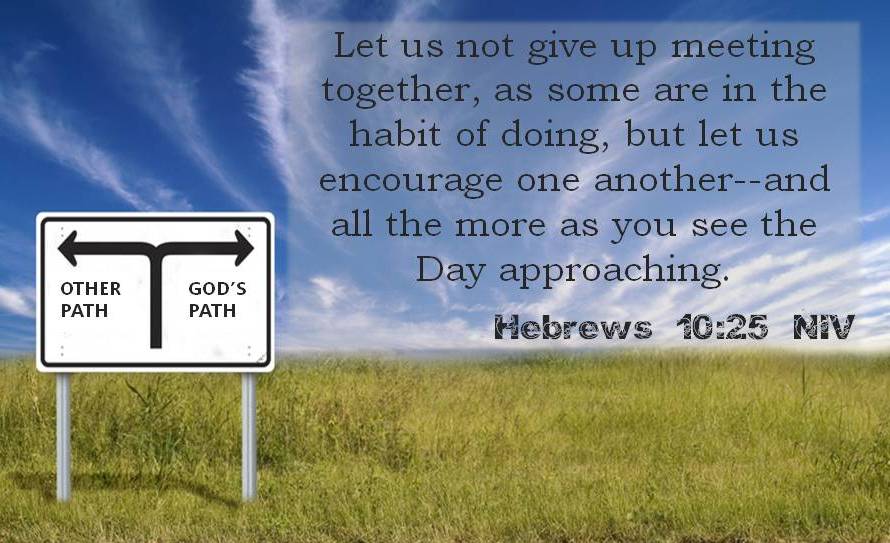Home | About Us | Directions | Bulletins | Sermons & Audio | Cross Of Christ Studies | Classes | Student and Parent Resource Page | Dangers Facing the "Non-Traditional"
A Godly View of Sin
by Sewell Hall
“What happened to sin?" This question, occasionally asked these days, can be answered with another question: "Whatever happened to God?” When people lose sight of God, sin cannot be far behind.
The World's View Of Sin: -- Worldly people usually have in mind some vague definition of sin. In their view murder is sin because it hurts other people. If you asked the average person to name a sinner, he might well name Saddam Hussein; look how many people he has hurt! On the other hand a psychology professor I knew insisted that sexual relations between two unmarried consenting adults is no more than a handshake if no one gets hurt.
Some take another step to call things sin if they hurt the one who does them. These days some people think of smoking as sinful because it harms the body. At the same time, drunkenness is winked at as long as one does not harm himself or drive under the influence.
Things may be thought sinful once they become socially unacceptable; speaking against homosexuality is just about the most heinous sin some people can imagine. Illegal things are considered sinful if one is caught and, if not, they become clever. And, of course, anything that makes you feel bad about yourself is probably a sin for you.
Notice that all of these involve horizontal relationships. Sin is defined in purely human terms. The only authority acknowledged is human authority. The guilt or innocence of any action is judged by its visible and foreseeable effect on people here and now. God is not in the picture.
The Godly View: -- As godliness is defined, however, everything is judged in reference to God. The word sin, as used in the Bible, is "missing the mark." Crime is missing the mark set by men: sin is missing the mark set by God (1 Jn. 3:4). Murder is sin, not because it is illegal or because it hurts someone but because God has forbidden it. The mark God has set may be missed by going beyond it (1 Jn 5:17; 2 Jn. 9) of by coming short of it (Jas. 4:17; Rom. 3:23).
The act by which "sin entered into the world" (Rom. 5:12) was an act that few people in our godless age would call sin. In fact, I am asked sometimes, "What do you think that Adam and Eve really did?" Well, what they really did was eat a piece of fruit (Gen. 3:6), and it was sin because God had forbidden it. Whether men see anything wrong in their action is beside the point.
When God told Abraham to offer his son on an altar (Gen. 22:2), he would have sinned if he had failed to obey. His faith was demonstrated in his willingness to do what God said, regardless of his own human sense of right and wrong.
Fornication, idolatry, adultery, homosexuality, covetousness, drunkenness, and extortion were socially acceptable in Corinth, but the Holy Spirit through Paul insisted that those practicing such things would not "inherit the kingdom of God" (1 Cor. 6:9,10). "Let no one deceive you with empty words, for because of these things the wrath of God comes upon the sons of disobedience" (Eph. 5:6).
Even worship can be sin if it is not what God desires (Matt. 7:21-23), and a failure to worship is also sin (Jas. 4:17).
God And Sin: -- Once God is brought into the picture it becomes clear that sin is man's greatest problem. "For the wrath of God is revealed form heaven against all ungodliness and unrighteousness of men..." (Rom. 1:18). What man on his own can escape the wrath of God? Since sin is an offense against God, only God can forgive it. And forgiving sin is not easy even for God. It cost Him the life of His Son.
The just penalty attached to sin by a just God is death; consequently, justice demands that the penalty be paid if sins are to be forgiven. If the sinner paid it he would be forever separated from God. But "God so loved the world that He gave His only begotten Son, that whoever believes in Him should not perish but have everlasting life" (Jn. 3:16). He allowed His Son to be "cut off out of the land of the living for the transgression of My people, to whom the stroke was due" (Isa. 53:8).
Whenever we are tempted to sin, even in ways that the world considers innocent, we should ask with Joseph, "How then can I do this great wickedness and sin against God?" (Gen. 39:9). And when even the world pronounces us guilty, we still must confess to God along with David, "Against You, You only, have I sinned, and done this evil in Your sight..." (Psa. 51:4).
Other Articles by Sewell Hall
Rearing Unselfish Children
Five Smooth Stones of Parenting
Why Do Churches of Christ Differ So Widely?
Is Only One Church Right?
Confusion and Transgression
Dangerous Preaching
Churches -- God-Centered or Man-Centered
For Past Auburn Beacons go to:
www.aubeacon.com/Bulletins.htm
Anyone can join the mailing list for the Auburn Beacon! Send your request to:
larryrouse@aubeacon.com









